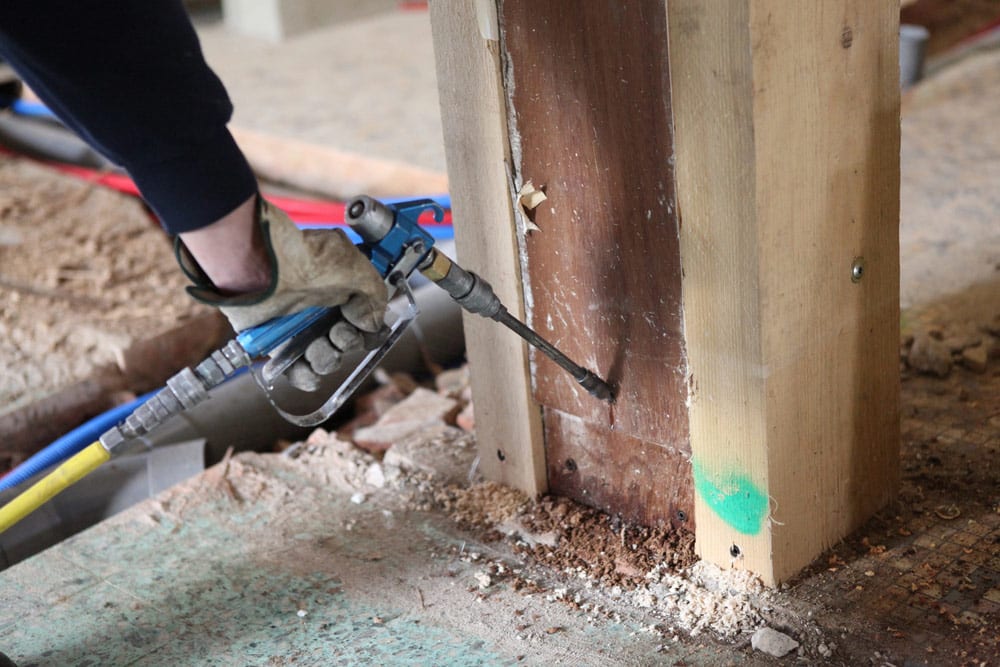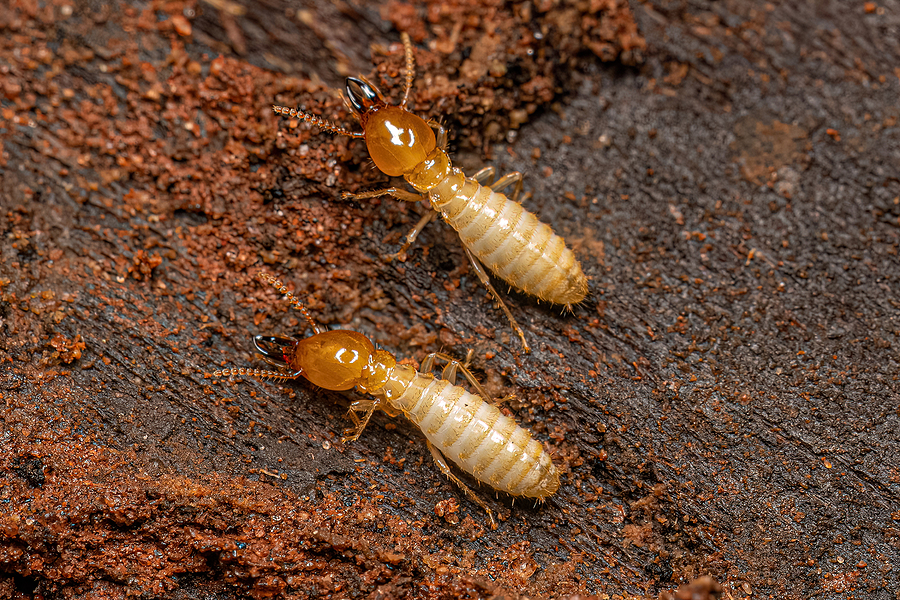Why Select Our Termite Control Services: Specialist Solutions for Effective Protection
Wiki Article
Ecological Effect of Insect Control: Balancing Effectiveness With Sustainability
The ecological influence of insect control is a critical issue that needs a fragile balance in between attaining effectiveness in ensuring and handling bugs sustainability of our ecosystems. From the use of damaging chemicals that leak into our soil and water to the unplanned effects on non-target types, the effects of standard insect control methods are far-ranging.Dangerous Chemicals in Pest Control
The use of unsafe chemicals in insect control postures significant environmental and health dangers that warrant careful consideration and mitigation strategies. Pesticides, herbicides, and chemicals are commonly used to eradicate parasites, yet their prevalent application can result in unintended effects. These chemicals can infect soil, water sources, and the air, impacting not just the targeted bugs however likewise advantageous pests, wildlife, and human beings.
To address these risks, integrated pest administration (IPM) strategies are being promoted as a much more sustainable option. IPM includes a combination of approaches such as organic control, environment adjustment, and the targeted usage of pesticides as a last hope (ant control cherryville nc). By adopting an alternative method to pest control, we can lessen the environmental and wellness impacts associated with hazardous chemicals while successfully handling pest populations
Effect On Non-Target Types
Thinking about the unintended effects of pest control approaches, the influence on non-target types is an essential facet that requires detailed evaluation. While parasite control measures aim to target particular insects, various other microorganisms in the community might be accidentally affected. Non-target species, including helpful pests, birds, animals, and even plants, can suffer direct or indirect damage from chemical applications or biological control techniques.Insecticides created to battle a specific bug parasite may damage pollinators like or natural predators such as ladybugs. Organic control agents, if not species-specific, can position dangers to unintentional targets, disrupting the eco-friendly balance.
To minimize the effect on non-target species, integrated parasite monitoring (IPM) approaches that highlight an all natural approach to pest control are recommended. These approaches focus on making use of eco friendly techniques, minimizing damage to helpful microorganisms while properly handling pest populations. Conducting comprehensive danger assessments and keeping an eye on the end results of pest control initiatives are important action in safeguarding non-target varieties and promoting general community health and wellness.
Soil and Water Contamination
Unexpected ecological repercussions of parasite control techniques extend past influencing non-target types, with significant ramifications for soil and water contamination. Chemicals, herbicides, and chemical plant foods utilized in pest control can leach into the soil and contaminate groundwater, positioning a risk to both aquatic and earthbound environments. Soil contamination can disrupt the balance of bacteria necessary for vitamins and mineral biking and plant growth, leading to decreased soil fertility and efficiency. In addition, these chemicals can continue the setting for prolonged durations, collecting in the dirt and potentially entering the food cycle.Water contamination is one more vital problem associated with pest control practices. To mitigate dirt and water contamination from bug control tasks, integrated parasite monitoring approaches that focus on sustainability and reduce chemical inputs are essential.
Air Pollution From Chemical Use
Exposure to air-borne pesticides during farming applications positions a significant concern for air contamination control procedures. When pesticides are splashed onto crops, they can volatilize into the air and kind unpredictable natural compounds (VOCs) and other air-borne pollutants. These chemicals can add to the development of ground-level ozone, a major part of smog that can have detrimental effects on human health and wellness, crop performance, and total air top quality. Additionally, chemical drift, where pesticides are brought by the wind to unexpected locations, can cause the contamination of close-by environments and water bodies.
Approaches for Lasting Pest Control
In the realm of farming techniques, carrying out sustainable parasite control approaches is paramount for maintaining environmental balance and safeguarding crop returns. Lasting parasite control stresses using ecologically pleasant approaches to take care of pest populations properly while reducing damage to non-target organisms and ecosystems. Integrated Pest Monitoring (IPM) is an extensively taken on approach that incorporates biological, social, physical, and chemical control methods to attain long-term bug administration remedies.One trick approach in lasting bug control is advertising biodiversity within agroecosystems. By improving all-natural adversaries of bugs, such as killers and parasitoids, farmers can lower the demand for artificial pesticides. Crop turning and diversity are additionally effective methods to disrupt pest life process and produce much less positive conditions for pests to grow. Furthermore, using pest-resistant crop varieties and using methods like trap chopping can assist reduce parasite stress without relying greatly on chemical interventions. Ultimately, by incorporating these sustainable parasite control methods, farmers can accomplish an equilibrium between pest management efficiency and environmental stewardship.
Verdict
To conclude, the environmental impact of pest control methods need to be carefully thought about to stabilize effectiveness with sustainability. Damaging chemicals made use of in pest control can cause dirt and water contamination, air contamination, and harm non-target types - termite control services. It is essential to apply sustainable pest control techniques to lessen these adverse effects on the environment and promote a healthier environment for future generationsBy taking on an all natural approach to pest control, we can minimize the environmental and health and wellness influences associated with harmful chemicals while successfully managing pest populations.

To reduce the air contamination triggered by chemical usage, it is crucial to take on incorporated pest monitoring strategies that prioritize the usage of non-chemical parasite control methods, such as crop turning, all-natural killers, and immune plant ranges. Sustainable pest control emphasizes the use of environmentally pleasant approaches to manage bug populaces successfully while reducing damage to non-target microorganisms and ecosystems. Integrated Parasite Management (IPM) is an extensively embraced technique that combines organic, cultural, physical, and chemical control methods to achieve lasting parasite monitoring solutions.
Report this wiki page